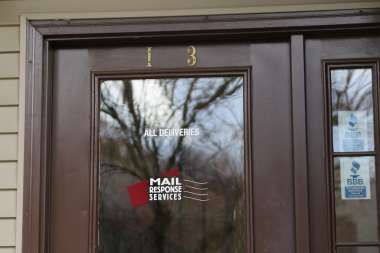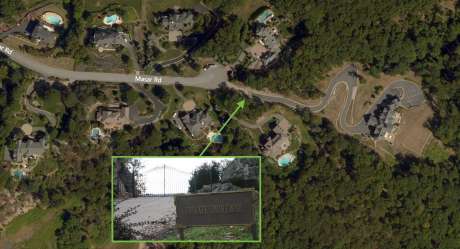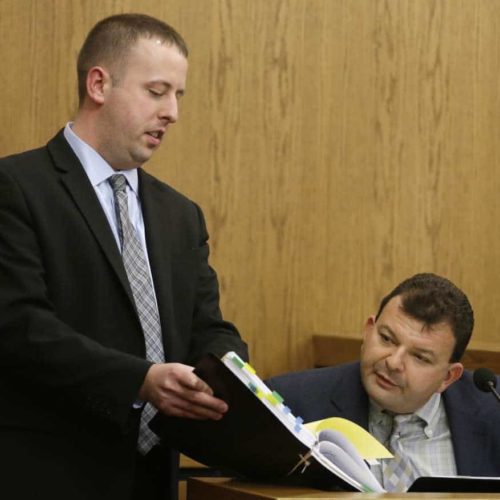Introduction
The Center for Public Integrity is a nonprofit newsroom that investigates betrayals of public trust. Sign up to receive our stories.
The Federal Trade Commission and four state attorneys general have shut down a “sprawling fundraising operation” that allegedly bilked unsuspecting donors out of tens of millions of dollars, according to court documents filed Tuesday.
The fundraising network, led by New Jersey businessman Mark Gelvan, was the focus of a 2017 Center for Public Integrity investigation into the telemarketers working with about two dozen charities and political action committees that spent little, if anything, on the causes they championed.
“This action puts fundraisers on notice: The FTC will not only shut down sham charities, it will aggressively pursue their fundraisers who participate in the deception,” Andrew Smith, director of the FTC’s Bureau of Consumer Protection, said in a news release.
All together, the U.S. District Court in the Southern District of New York ordered Gelvan and his co-defendants to pay back more than $58.5 million, but they will only be required to pay back a small portion of that “based on their inability to pay.” The money will be sent to legitimate charities.
The lawsuit filed Tuesday by the FTC and the attorneys general for New York, Virginia, Minnesota and New Jersey was the culmination of a years-long investigation by regulators into Gelvan. It represents a major shift in enforcing the nation’s laws that protect consumers from misleading telemarketing calls. In the past, regulators often targeted charities that fraudulently spent donations — shutting them down one by one and banning their founders from fundraising — rather than the telemarketers who contracted with them.
“You’ve got to work your way up,” Jim Sheehan, the head of the charities bureau for the office of the New York Attorney General, told Public Integrity in 2017 when asked why Gelvan wasn’t sanctioned after some of his nonprofit clients had been shut down. “You don’t use sharks to catch minnows.”
Gelvan was banned in 2004 from fundraising in New York in part because his solicitors impersonated police officers when they asked for donations. He continued fundraising in other states and made a personal fortune leading companies that contracted with charities and political committees.
His primary company, Outreach Calling, raised more than $118 million on behalf of about two dozen charities from 2011 to 2015, according to a Public Integrity analysis of state government records.

The company kept $106 million of the haul, leaving $12.2 million — or 10.3 percent — for its client charities, which included the National Vietnam Veterans Foundation, the Disabled Police and Sheriffs Foundation, the Breast Cancer Survivor Foundation and the Childhood Leukemia Foundation, among others.
In 2017, Outreach Calling expanded into the highly unregulated realm of political fundraising. In the first nine months of 2017, the company kept $1.3 million out of the $1.5 million it raised for a veterans-focused political action committee.
The FTC and the attorneys general said Gelvan led a network of defendants who, through telemarketing and mailings, promised prospective donors that they would send care packages to Vietnam veterans in need, support transitional facilities for homeless veterans and give grants to family members of fallen officers.
“In truth, the Defendants have fundraised for sham charities, several of which have been shut down through state and federal enforcement actions,” according to the lawsuit filed Tuesday. “Only a fraction of each donated dollar — typically no more than 5%, if that — is spent on the stated charitable programs, while 85-90% is distributed to for-profit companies that primarily benefit Gelvan.”

Gelvan has to pay $800,000 in penalties and must sell two New Jersey properties and surrender the proceeds. (In 2017, he was living in a $2.6 million home owned by his wife in the tony Valhalla Estates neighborhood, overlooking Lake Valhalla in Montville, New Jersey. His wife also owned a $1.5 million home in Palm Beach County, Florida.)
Gelvan’s co-defendants include Damian Muziani, Thomas Berkenbush, William English and three companies, including Outreach Calling. The FTC also required the three men pay fines. Their penalties also were reduced because they are unable to pay the full amounts.

In March, one of Gelvan’s clients, retired Army Maj. Brian Arthur Hampton, was banned by attorneys general in New York and Virginia from charitable fundraising and fined $100,000 after a separate Public Integrity investigation into Hampton. The two charities allegedly misused $13 million in donations from unsuspecting Americans.
Public Integrity has investigated other organizations that spend little on the people they claim to help, including one that exposed a Las Vegas-based telemarketing operation run by Richard Zeitlin. His companies were paid at least $133.1 million out of $153.1 million they raised for charities and political committees between 2006 and 2019, according to a Public Integrity analysis.
The FTC was investigating whether two of Zeitlin’s companies, Donor Relations and Courtesy Call, were “engaging in unfair or deceptive acts or practices,” according to a court document filed by the commission in February 2018.
The companies did not cooperate, according to the FTC, failing to meet deadlines and sending “patently inaccurate” documents. The FTC suddenly dropped the investigation in fall 2018, citing an ongoing grand jury investigation in southern Florida involving Courtesy Call and Donor Relations.
Zeitlin’s lawyer, Joel Hansen, previously defended his telemarketing practices, explaining that fundraising for small and medium charities is “overhead intensive.” Zeitlin, he said, is a “successful entrepreneur and businessman” who has raised millions of dollars for charities that they otherwise would not have had.
Read more in Money and Democracy
Money and Democracy
Analysis: Threats to democracy on Inauguration Day, and the lies that got us here
Without a common narrative about the past, the U.S. will never be united.



Join the conversation
Show Comments